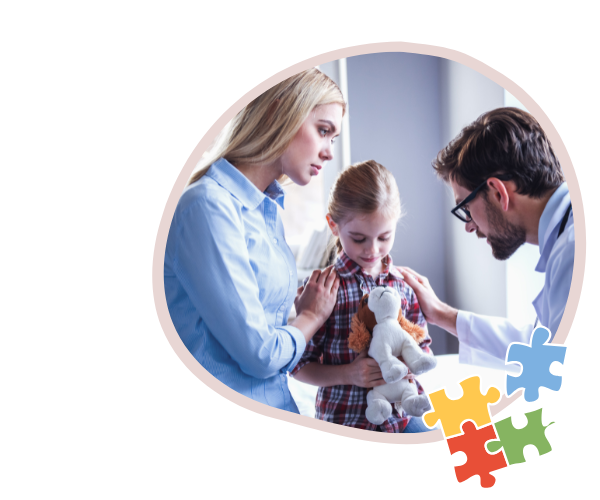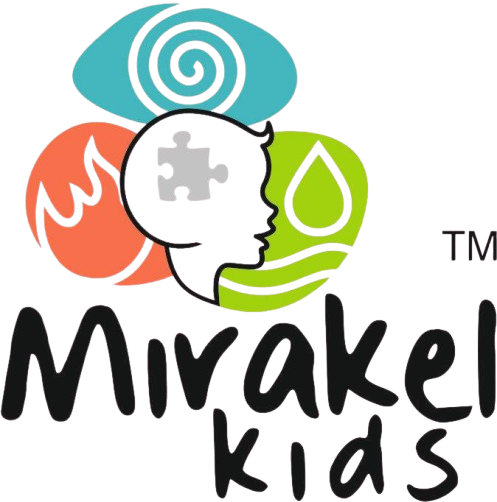Global Developmental Delay

What is Global Developmental Delay (GDD)?
Global Developmental Delay (GDD) is a condition where children experience significant delays in multiple areas of development, such as motor skills, speech, cognitive function, and social interactions. These delays may affect a child’s ability to learn, communicate, or perform everyday activities expected for their age.
While some children may eventually catch up, others may require long-term therapy and structured interventions to support their growth and development. Early intervention is crucial in helping children reach their full potential.
Ayurvedic Perspective on Global Developmental Delay
In Ayurveda, GDD is associated with imbalances in the Vata and Kapha doshas:
- Vata dosha controls movement, brain activity, and nervous system function. An aggravated Vata may result in delayed reflexes, poor coordination, and hyperactivity.
- Kapha dosha governs growth, immunity, and stability. Excess Kapha may lead to sluggishness, low muscle tone, and slow cognitive development.
Ayurvedic treatments aim to strengthen the nervous system, support brain function, and enhance muscle tone and coordination by restoring balance to these doshas.
Causes of Global Developmental Delay
GDD can be caused by various neurological, genetic, and environmental factors that affect early brain development. Common causes include:
-
1
Premature birth and low birth weight,
leading to underdeveloped brain function and motor skills.
-
2
Genetic conditions,
such as Down syndrome, cerebral palsy, or metabolic disorders.
-
3
Brain injury or infections,
such as meningitis, encephalitis, or oxygen deprivation at birth.
-
4
Nutritional deficiencies,
including a lack of iron, iodine, omega-3 fatty acids, and B vitamins, which are essential for brain development
-
5
Exposure to toxins or infections during pregnancy,
affecting foetal brain growth and function
Global Developmental Delay Support Programme at Mirakel Kids™
Book An Appointment
Know More About
- Condition We Treat
- Therapies
Global Developmental Delay (GDD) Treatment with Mạnӧ Saṃvardhāna Chikitsā™
A Holistic Ayurvedic Approach to Enhancing Cognitive, Motor & Social Development
At Mirakel Kids™, we follow Mạnӧ Saṃvardhāna Chikitsā™, a specialised Ayurvedic therapy designed to support children with Global Developmental Delay (GDD). Rooted in ancient Ayurvedic principles, this approach nourishes, strengthens, and balances the mind and nervous system, helping children improve motor skills, speech, cognitive abilities, and social interaction.
Mạnӧ (मनः)
Mind, psychological well-being, cognitive functions
Saṃvardhāna (संवर्धन)
Nourishment, development, enhancement
Chikitsā (चिकित्सा)
Treatment, therapy
Thus, Mạnӧ Saṃvardhāna Chikitsā™ translates to “Holistic Mind Nourishing Therapy.” It is an Ayurvedic approach designed to support overall brain development, enhance motor coordination, improve speech and language skills, and regulate sensory integration. This therapy is particularly beneficial for children experiencing delayed milestones, cognitive delays, speech difficulties, and motor impairments.
Mạnӧ Saṃvardhāna Chikitsā™ is based on a structured 4-pillar protocol consisting of Bahya Chikitsa (External Therapy), Abhyantar Chikitsa (Internal Therapy), DEALS Framework, Stress & Sleep Management, and Parental Support & Holistic Development to promote overall well-being.
Bahya Chikitsa (External Therapy)
Targeted Ayurvedic Therapies for Cognitive & Motor Development
Bahya Chikitsa consists of specialised Ayurvedic therapies that work on the nervous system, sensory processing, and motor coordination. These treatments help children with GDD develop stronger muscles, better cognitive responses, and improved sensory regulation.
Therapies Under Bahya Chikitsa
-
1
Abhyanga (Ayurvedic Oil Massage) –
Uses medicated oils like Bala Taila, Ksheerabala Taila, and Brahmi Taila to strengthen muscles, improve coordination, and support nervous system development.
-
2
Shirodhara (Medicated Oil Dripping Therapy) –
A steady stream of warm herbal oil on the forehead stimulates cognitive function, enhances sensory integration, and improves concentration.
-
3
Nasya (Medicated Nasal Therapy) –
Herbal oils like Anu Taila and Brahmi Ghrita are administered through the nasal passage to enhance brain oxygenation, improve neurological function, and support speech development.
-
4
Pizhichil (Oil Bath Therapy) –
A continuous stream of warm medicated oil is poured over the body to promote muscle relaxation, enhance circulation, and support brain function.
Benefits for GDD
- Enhances cognitive function & brain development
- Improves gross & fine motor coordination
- Supports speech & language development
- Regulates sensory processing & motor planning
Abhyantar Chikitsa (Internal Therapy)
Brain-Nourishing Herbal Formulations to Support Milestone Achievement & Neurological Growth
Abhyantar Chikitsa focuses on internal Ayurvedic medicines and herbal formulations that help improve cognitive abilities, muscle strength, and overall brain function. Medhya Rasayanas (brain tonics) are carefully selected to enhance neurodevelopment, strengthen memory, and improve learning abilities.
Key Herbs Used
-
1
Brahmi (Bacopa Monnieri) –
Enhances cognition, memory retention, and sensory integration.
-
2
Shankhapushpi –
Strengthens mental clarity, speech processing, and learning capabilities.
-
3
Bala & Vacha –
Promote speech clarity, strengthen muscles, and improve coordination.
-
4
Ashwagandha –
Boosts physical strength, supports motor function, and reduces restlessness.
-
5
Guduchi & Mandukaparni –
Improve nerve conduction, enhance motor skills, and support immunity.
Benefits for GDD
- Enhances cognitive processing & problem-solving skills
- Improves muscle tone, motor skills & balance
- Supports language, speech, and communication development
- Strengthens emotional resilience & sensory adaptation
Duration: 1-3 years (based on severity)
A Structured Holistic Approach to Boost Developmental Milestones
-
1
D – Diet Management –
An Ayurvedic diet rich in brain-boosting nutrients, Vata-balancing foods, and herbal supplements to enhance neurological development and motor function.
-
2
E – Exercise Management –
Structured movement therapy, yoga postures, and guided exercises to improve muscle tone, coordination, and balance.
-
3
A – Art of Sensory Integration Management –
Children with GDD often experience tactile (touch) and proprioceptive (body awareness) sensory sensitivities, leading to delayed motor skills, poor coordination, and difficulty processing touch stimuli. Our therapies regulate sensory imbalances through Ayurvedic interventions, sensory play techniques, and guided therapy to bring sensory responses to a normal level.
-
4
L – Lifestyle Management –
Consistent daily routines, interactive learning activities, and structured movement exercises to promote motor learning and cognitive growth.
-
5
S – Stress & Sleep Management –
Ayurvedic therapies like Shirodhara, Nasya, and full-body massages, combined with herbal formulations, to support relaxation and encourage restful sleep.
How Sensory Integration Works for GDD:
-
1
Tactile Sensitivity:
Children with GDD often struggle with certain textures, touch, or pressure on the skin, making everyday activities like dressing or handling objects difficult. Ayurvedic oil therapies, guided exposure, and sensory integration techniques help regulate touch sensitivity and improve coordination.
-
2
Proprioceptive Sensitivity:
Many children with GDD experience difficulty with body awareness, balance, and coordinated movement, affecting walking, running, and fine motor skills. Targeted motor exercises, oil therapies, and guided body awareness training improve muscle tone and postural stability.
Benefits for GDD
- Improves coordination & sensory-motor integration
- Enhances cognitive development & problem-solving skills
- Regulates body awareness & movement control
- Boosts emotional stability & self-confidence
Duration: Ongoing (with periodic adjustments)
Empowering Families with Ayurvedic & Developmental Strategies for GDD Management
Managing Global Developmental Delay (GDD) requires a structured support system, motor skill development, and continuous cognitive engagement. Our parental support program includes:
Key Strategies for Home-Based Support
-
1
Dinacharya (Daily Routine for Kids) –
Regulating sensory activities, daily movement therapy, and structured learning schedules.
- 2 Yoga & Pranayama for Motor Coordination & Cognitive Growth
- 3 Aromatherapy & Sound Therapy for Calming Sensory Overload
- 4 Mantra Chanting for Speech & Communication Development
Benefits for GDD
- Guides parents in supporting motor & cognitive development
- Encourages interactive learning & social engagement
- Improves fine & gross motor skills through structured activities
- Strengthens emotional bonding & communication
Duration: Ongoing (with periodic adjustments)
Why Choose Mạnӧ Saṃvardhāna Chikitsā™ for GDD?
A Unique Ayurvedic Therapy Tailored for Cognitive & Motor Development
100% Natural & Safe Treatments
Customised Ayurvedic Therapies – External & Internal Therapies, DEALS Framework, & Sensory Integration
Clinically Proven to Improve Motor Skills, Cognitive Growth & Sensory Processing
FAQ
-
What is Global Developmental Delay, and how can Ayurveda help?
GDD is a condition where children experience delays in multiple areas of development. Ayurveda helps by strengthening the nervous system, improving brain function, and enhancing coordination through holistic therapies.
-
How long does it take to see results?
Some improvements may be seen within a few months, but long-term progress depends on early intervention, consistency, and personalised therapy.
-
Are these treatments safe for children?
Yes, all treatments are natural, non-invasive, and tailored for children. They focus on gentle, supportive care.
-
How do I get started?
Contact Mirakel Kids™ to book an assessment. We will create a personalised Ayurvedic plan to help your child develop their skills naturally.
Disclaimer: Ayurvedic treatments mentioned in this content may support overall wellness and can act as complementary therapies. However, for conditions like speech delay, these treatments should be used in conjunction with conventional medical interventions, such as speech therapy and behavioral treatments, under the guidance of healthcare professionals.
